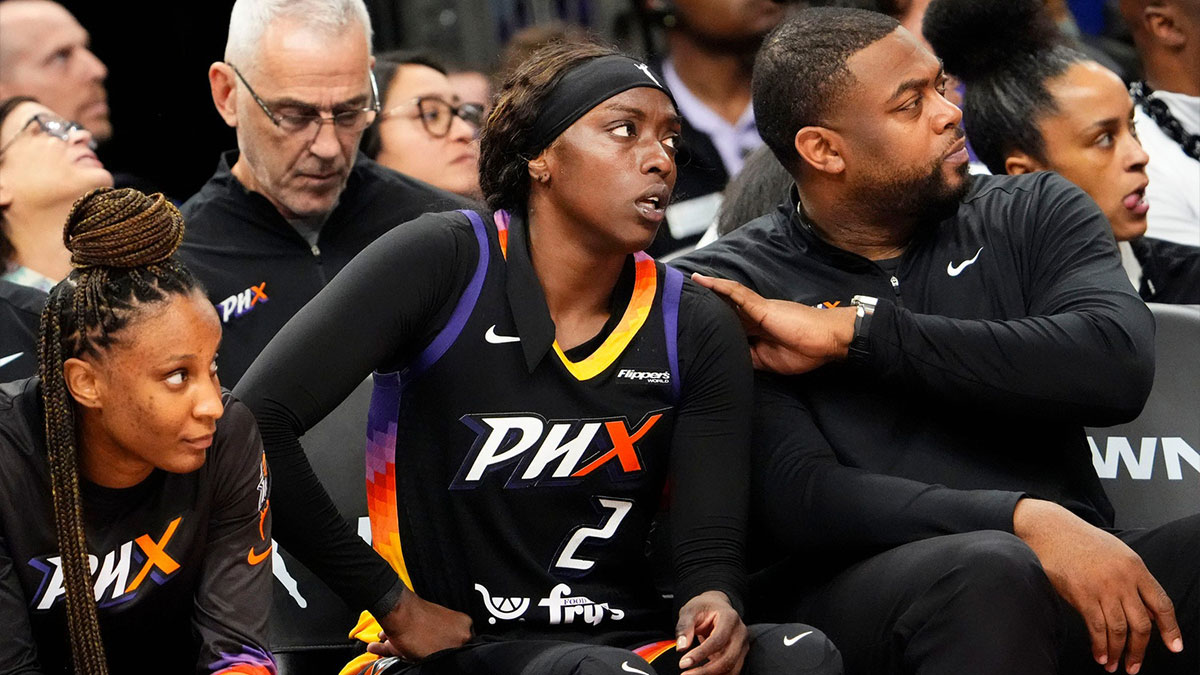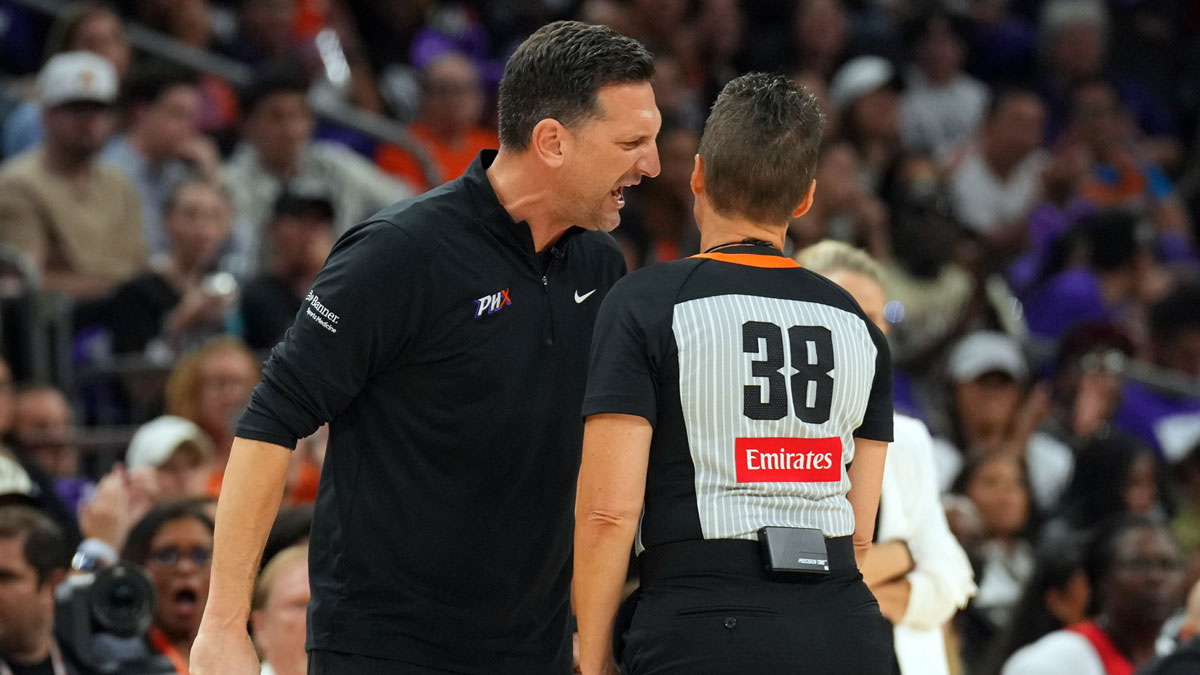As the 2025 WNBA Playoffs reach a critical stage, the semifinal series between the Phoenix Mercury and the Minnesota Lynx stands out as one of the most thrilling and competitive matchups. Tied 1-1 after the first two games, the series shifts to Phoenix for Games 3 and 4, giving the Mercury a golden opportunity to seal the series at home.
After a stunning 20-point comeback in Game 2 on Minnesota’s home court, the Mercury have both momentum and the home-court advantage for the next two games. The task is now clear: Win both home games and avoid a return to hostile territory for a decisive Game 5.
Let's take a look at how the Mercury can close out the semifinals on their home floor, considering the risks and pitfalls that must be avoided to complete the mission. Examining tactical components, team chemistry, and the importance of execution under pressure can lead to a better understanding of the path Phoenix must follow to reach the WNBA Finals.
THIS IS THE PLAYOFFS.
MERC WIN, BABY! pic.twitter.com/NhkPMf6rja
— Phoenix Mercury (@PhoenixMercury) September 27, 2025
The road to a home-court clinch
The WNBA semifinal format is a best-of-five series, where the higher seed, in this case, the No. 1 seed Lynx, hosts Games 1, 2, and 5. The lower seed, Phoenix, hosts Games 3 and 4. After splitting the first two games in Minnesota, Phoenix returns home with the series tied 1-1. Their dramatic 89-83 overtime victory in Game 2, where they erased a 20-point deficit, not only evened the series but also injected the Mercury with confidence and belief. With Games 3 and 4 now in their own backyard, the Mercury can seal the series at home by winning both.
From a strategic standpoint, this is an optimal scenario for Phoenix. Avoiding a Game 5 on the road is critical, especially against a team like Minnesota that thrives on home support and tight execution. For the Mercury, the chance to win two straight games at home is both a challenge and an opportunity. Success hinges on preparation, tactical execution, and psychological readiness.
To win both home games, Phoenix must excel in several key areas, like tempo control, execution, defensive disruption, and mental toughness. Each of these facets contributes to the broader objective of winning high-stakes playoff games under pressure.
1. Leveraging home-court advantage
In any playoff series, playing at home is more than just a logistical benefit; it's a mental and emotional amplifier. The Mercury must feed off the energy of their fans, use the familiarity of their court to their advantage, and come out aggressive. Historically, teams that start strong at home tend to maintain momentum throughout the game. This makes the first quarter of Game 3 especially critical.
Phoenix must use quick ball movement, run in transition, and make Minnesota uncomfortable from the tip-off. Crowd energy can swing momentum, but only if the team gives the fans a reason to believe early. By jumping out to a lead and maintaining that tempo, the Mercury can place the Lynx in a reactive position rather than letting them dictate the pace.
2. Controlling tempo and offensive flow
One of the most effective ways to beat the Lynx is to disrupt their rhythm. Known for their half-court sets and deliberate offensive structure, the top-seeded squad thrives on executing plays with precision. Phoenix must counter this by pushing the ball in transition, using secondary breaks, and forcing Minnesota’s defense to scramble.
Phoenix’s offense works best when it avoids stagnation. Ball movement, cutting, and off-ball screens are crucial to generating open looks. Alyssa Thomas can act as a facilitator from the high post, reading the defense and initiating motion. And with players like Satou Sabally and Sami Whitcomb providing spacing and shooting, the Mercury can stretch the Lynx’s defense and create driving lanes.
3. Defensive adjustments
Defensively, Phoenix must neutralize Minnesota’s top scorers, particularly Napheesa Collier and Kayla McBride. Collier is a versatile forward who can score inside and out, while McBride is lethal from the perimeter. The Mercury must switch intelligently, contest shots, and force the Lynx into tough mid-range jumpers.
Zone looks or trap defenses may also be effective in disrupting Minnesota’s offensive flow. In Game 2, Phoenix succeeded when it applied full-court pressure and used aggressive hedging on pick-and-rolls. By mixing up defensive schemes, the Mercury can keep the Lynx guessing and disrupt their scoring rhythm. Rebounding will also be key since second-chance opportunities could swing momentum toward Minnesota if not properly addressed.
4. Lean on key players
A playoff series often hinges not just on star power but also on how role players perform under pressure. For the Mercury, their core trio of Thomas, Sabally, and Kahleah Copper must rise to the occasion, and the supporting cast must deliver when called upon.
Thomas has been the Mercury’s emotional and tactical engine all season long. Her ability to initiate offense, defend multiple positions, and rebound effectively makes her essentially irreplaceable. In the semifinal series, her role becomes even more crucial. If Thomas can stay out of foul trouble and continue to make plays late in games, Phoenix will be difficult to beat.
In Game 2, her decision-making and leadership were instrumental in the Mercury’s comeback. Thomas must stay composed and focused, especially if the Lynx throw different defensive looks at her.
Meanwhile, Sabally’s shooting and versatility offer Phoenix another dimension. When she is hitting her threes and attacking the rim, the floor opens up for everyone else. Her ability to stretch the defense will be key in both home games. Sabally also provides size and rebounding, both of which are necessary to counter Minnesota’s physical frontcourt.
Beyond the stars, Phoenix’s bench must show up. Their bench players may not all be household names yet, but their minutes matter. Whether it’s providing energy, hitting a timely three, or making a key defensive stop, the supporting cast can tip the scales.
5. Outcoaching Cheryl Reeve
Meanwhile, Mercury head coach Nate Tibbetts must manage rotations smartly. Ensuring that legs are fresh late in the fourth quarter could be the difference between advancing or going home.
Minnesota’s head coach, Cheryl Reeve, is one of the best tactical minds in the WNBA. She will almost certainly adjust after the Game 2 loss, particularly to address Phoenix’s offensive spacing and fast-break points. Therefore, the Mercury must be prepared to adapt on the fly.
This means preparing for multiple scenarios. The Lynx could play a zone, throwing double teams at Thomas, or go small to increase pace. The Mercury must counter these with flexible lineups of their own. For example, if Minnesota goes small, Phoenix can play Sabally at the five and run a five-out offense to open the lane for drives.
Timeout usage, out-of-bounds plays, and late-game situational awareness must be sharp — winning playoff games often comes down to who executes better in the final minutes.
6. Mental toughness and execution under pressure
Winning at home in the playoffs is never guaranteed. In fact, it can bring added pressure. Expectations from fans, media attention, and the knowledge that a Finals berth is within reach can weigh heavily. Phoenix must display mental toughness.
This involves more than just making shots. It means limiting turnovers, managing the clock, executing late-game sets, and staying composed during momentum swings. Game 2 proved that the Mercury have resilience. Now, they need to channel that same mentality with the crowd on their side rather than as underdogs on the road.
Veteran leadership, particularly from Thomas and Copper, will be critical. Their ability to calm the team, rally the bench, and stay laser-focused will determine whether Phoenix can close the door on Minnesota.
While the path is clear, it is not without obstacles — the Lynx are the No. 1 seed for a reason. If Minnesota shoots well from deep or dominates the rebounding battle, Phoenix could find itself in trouble. Fatigue, foul trouble, or an off-night from a key player could send the series back to the Twin Cities for Game 5.
The Mercury must also guard against complacency. Winning Game 3 is important, but failing to maintain intensity in Game 4 could undo their progress.
Momentum is fragile in playoff basketball, and it can swing within a few possessions. Phoenix must remain locked in, recognizing that every minute counts and every possession matters.
The Mercury have a rare and valuable opportunity to seal a WNBA semifinal series at home against the top-seeded Lynx. After tying the series with a stunning comeback in Game 2, the Mercury now return to Phoenix with momentum and two chances to clinch in front of their fans.
To do so, they must control tempo, execute offensively, stay disciplined defensively, and manage late-game situations with precision. Their stars must shine, their role players must deliver, and their coaching staff must outmaneuver one of the league’s most respected minds.
Most importantly, Phoenix must embrace the pressure and rise to the moment. If the Mercury succeed, they won’t just reach the Finals — they will have defeated the WNBA’s best team on their own terms and on their home floor. That’s the kind of win that defines a championship team.




















